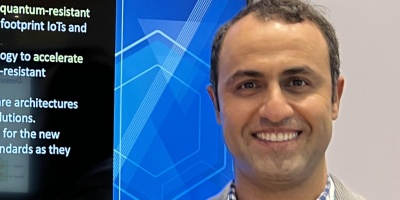Post-Quantum Cryptography Based on Isogenies and Progress in Hardware (Q11c)
Isogeny-based cryptography or more specifically supersingular isogeny Diffie-Hellman (SIDH) has recently received considerable attention form quantum-safe research community. A highly secure model of that, a.k.a supersingular isogeny key encapsulation (SIKE) has been submitted for evaluation and standardization by National Institute of Standards and Technology (NIST). Being a rather new system though SIDH and SIKE did not take a head start in the standardization race due to its performance. Very recently, it has involved more research and attention in the security and performance side. SIKE is based on a very different type of underlying hard mathematical problem and it is a highly valuable alternative as it offers smallest key size in comparison to the other leading quantum-safe candidates. In this talk, we will describe recent efforts in security analysis and performance evaluation in various hardware and software platforms. This includes discussion on constant-time highly parallelized scalable hardware (mainly FPGA) implementations and Software (PC and ARM) implementations. In addition, we discuss our recent research on secure implementations and side-channel and fault attack models and provide countermeasures. Finally, we introduce other potential applications of isogeny-based cryptography including digital signatures, undeniable signatures, and group key establishments. We will provide some performance results in both hardware and software platforms.

